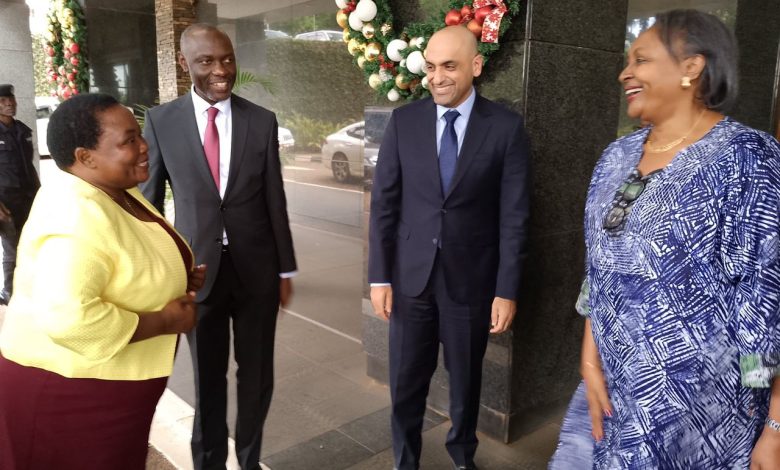Dubai Chamber-Uganda Business Agreement Paves the Way for Bold GDP Targets

Business
In a landmark move set to unlock significant economic opportunities, the Dubai International Chamber has signed a Memorandum of Understanding (MOU) with Uganda’s National Chamber of Commerce and Industry.
This partnership aims to catalyze expansion opportunities for Dubai-based businesses in Uganda while driving a new wave of foreign direct investment (FDI) into the East African nation.
Prime Minister Robinah Nabbanja expressed optimism about the transformative potential of the agreement, noting that it positions Uganda to expand its export reach into the Middle East, a region with a population exceeding 3 billion, while strengthening its ability to attract substantial FDI inflows.
Trade between Uganda and the United Arab Emirates (UAE) has grown significantly in recent years, with the trade volume between the two countries reaching $3.8 billion, marking a steady upward trajectory.
Uganda exports a variety of goods to the UAE, including gold, coffee, tea, cocoa, agricultural products, and meat, while importing equipment, machinery, and consumer goods.
The MOU, announced during Dubai Chamber International’s First Trade Mission in Kampala, reflects a shared commitment to economic collaboration between the two regions.
Prime Minister Nabbanja highlighted the deal’s potential to position Uganda as a key player in the Middle Eastern market, supporting the country’s goal of increasing exports while reinforcing its FDI appeal.
“Dubai is also our one-stop center for all our exports, and now, with this deal with Dubai Chamber International, our exports are already finding a market.
This agreement will also support our GDP target of raising the economy tenfold, from $50 billion to $500 billion by 2040,” Nabbanja said.
Uganda’s Envoy to Dubai, Zaake Kibedi, emphasized that the partnership presents significant business opportunities for the private sector, addressing bottlenecks in trade by improving logistical connections, simplifying market access, and creating mutually beneficial investment policies.
As Uganda positions itself to capitalize on its geographic and economic potential, the government remains confident about its growth prospects.
By leveraging strategic partnerships, Uganda hopes to enhance its economic competitiveness, increase export value, and secure its place on the global economic stage.




